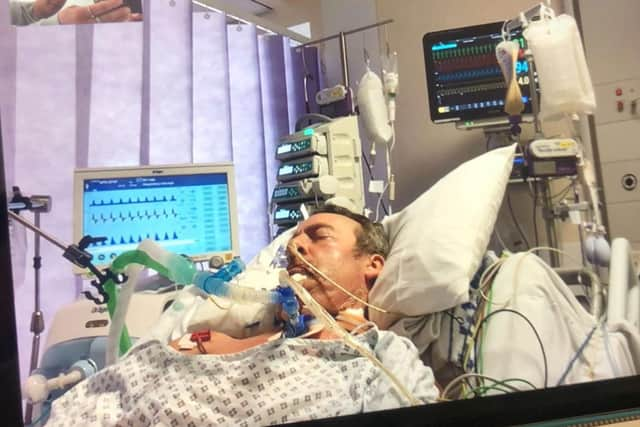High Sheriff of West Sussex talks to a recovering Covid-19 patient about the impacts of the disease
and live on Freeview channel 276
He is grateful to Laurence Penn for being so open about his experience and, as a doctor who has been working on the frontline in response to the coronavirus, Dr Fooks says the take home message is quite important.
In the first week of March this year, Laurence, a healthy 50-year-old West Sussex businessman, travelled to his office in Sutton for a meeting with a colleague. Unfortunately, his associate was so unwell with a fever and cough that, after 30 minutes, he was sent home.
Advertisement
Hide AdAdvertisement
Hide AdThree weeks later, Laurence was on a ventilator fighting for his life.


The reason why the Covid-19 virus causes some people to become so unwell is not fully understood. We know that the elderly and those with chronic medical conditions are at a significantly increased risk but Laurence had no obvious risk factors and it is still not clear why this virus was to prove, for him, very dangerous indeed.
Two weeks after the meeting, Laurence felt unwell. Three days later, he had a fever, loss of appetite, breathlessness and a hacking, debilitating, dry cough. His condition worsened and, a week later, he was so breathless that his wife Martine called an ambulance.
Laurence was rapidly transported to Worthing Hospital and given high dose oxygen via a helmet ventilation system. However, on March 31, the doctors had no choice but to place him into an induced coma and ventilate him.
Advertisement
Hide AdAdvertisement
Hide AdFor the next month, Laurence’s life hang in the balance. He required the insertion of a ventilator tube directly into his trachea and, every day, he had to be turned on to his front to aid his breathing. Throughout this time, Martine and their two daughters were not able to visit him and had to rely on a daily call from the consultant.